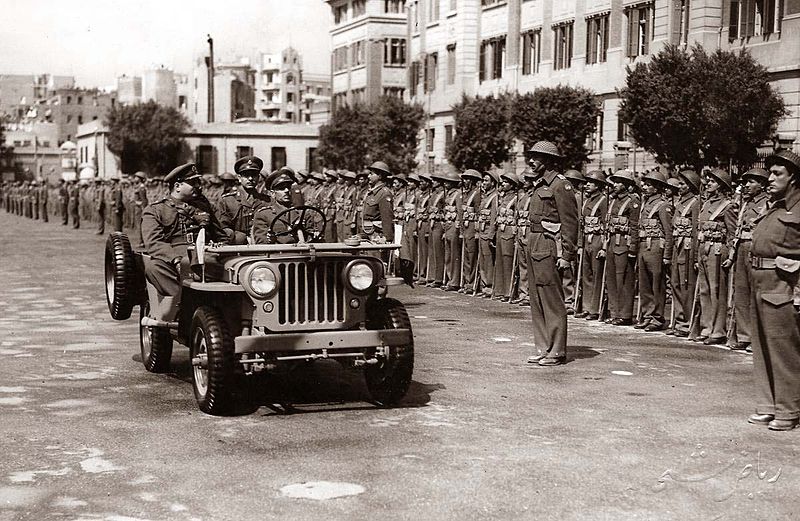Fostering Political Change in Egypt
Egypt will not become a liberal democracy overnight. Washington is betting on the wrong horse in Cairo.
 Here we go again. A bill introduced in the U.S. Senate threatens to withhold $1.3 billion in aid until the secretary of state certifies that Egypt “has held democratic elections and is protecting freedoms of the press, expression, and association.” (I am only surprised that the list of rights is so short. What about women’s rights? Religious freedoms? No taking? No unreasonable search and seizure?) The Washington Post believes that if we and other “rich countries” gave Egypt some “quick cash” and “money for long-term investment,” Egypt would be on its way to becoming a liberal democracy and gain a modern economy on the side.
Here we go again. A bill introduced in the U.S. Senate threatens to withhold $1.3 billion in aid until the secretary of state certifies that Egypt “has held democratic elections and is protecting freedoms of the press, expression, and association.” (I am only surprised that the list of rights is so short. What about women’s rights? Religious freedoms? No taking? No unreasonable search and seizure?) The Washington Post believes that if we and other “rich countries” gave Egypt some “quick cash” and “money for long-term investment,” Egypt would be on its way to becoming a liberal democracy and gain a modern economy on the side.
Here are the brute facts. Egypt was under military dictatorship for sixty years. The institutions essential for a democratic regime—competitive political parties, free and serious media (as distinct from sensationalist), an educated electorate involved in public affairs, a sizable middle class, above all a sense of self-restraint and willingness to compromise—are all in short supply. Moreover, these institutions cannot be shipped from overseas, commanded to grow overnight and designed to suit American preferences.
We best note that in several other countries, many of them with sociological conditions more favorable for a transfer to democracy than those in Egypt, it took a decade or more for a gradual transfer of power from the military to civilian institutions. These include South Korea and Chile. After South Korea’s military dictatorship officially ended in 1987, the military continued to have great influence over public life. A civilian did not hold the presidency until Kim Young Sam’s election in 1993. It was not until the election of President Lee Myung Bak in 2007 that observers felt South Korean democracy came to “full maturation.” Similarly, though the Chilean people ousted General Augusto Pinochet in a 1988 plebiscite, paving the way for democracy in 1990, it took fifteen years (until 2005) to remove many of the undemocratic Pinochet-era policies (e.g., former presidents serving as “senators-for-life,” the military and other government bodies selecting nine senators, and the inability of the president to remove the commander-in-chief of the armed forces). We should neither expect nor demand a jump to a Western-like polity.
Moreover, we best take into account that there are numerous groups that vie for power in Egypt. The main group includes the radical Islamists (especially the Sufis and some parts of the Muslim Brotherhood). They seek to impose an Iran-like interpretation of sharia—and would not shy away from supporting terrorism against Western targets. The second one includes relatively moderate Muslims, who subscribe to a less strict interpretation of sharia and are sorting out their positions on the West. The third one includes liberal, secular, democratic groups.
The liberal groups are the darlings of the West. But by allying itself with them, the United States is choosing the weakest of the three groups. The notion that sending them grants and staffers from the National Endowment for Democracy, plus some diplomatic pressure, will make them win the day is very appealing. But it isn’t likely to succeed, given that these groups suffered most under the outgoing regime, are the smallest of the lot and have weak organizational structures.
It follows that the United States and its allies can make the biggest difference if they support the gradual transition from military to civilian rule in Egypt by supporting both the liberal and the moderate Islamic groups (the strongest of the lot) against the radical Islamist ones. Cutting off aid unless the liberal cause is advanced is a losing proposition.
There is, though, a basic minimum we should demand for our support: rejection of violence against all people, foreign and domestic. We should use all our persuasive powers, including the purse strings, to demand that the military not torture people or jail people en masse without charging them and that it protect minorities (such as the Coptic Christians) from violence. (Those who hold that this is asking way too little should note that just-released reports show that we are unable to gain that much even from the Afghan government, which is highly dependent on us for both its revenues and security.)
A U.S. policy that assumes we can work with any group that refrains from supporting those who attack us and lives up to its duty to protect its own people is not only politically realistic and savvy. It also comports with the idea that it is up to the Egyptians to sort out the kind of regime they seek. We shall not stand in the way of such a development as long as it does not turn violent against us or its own people.
In other words, our first litmus test should be support for peace and order. Further political development will come, but gradually, and it cannot be commandeered.
Amitai Etzioni served as a senior advisor to the Carter White House; taught at Columbia University, Harvard and The University of California at Berkeley; and is a university professor and professor of international relations at The George Washington University.
